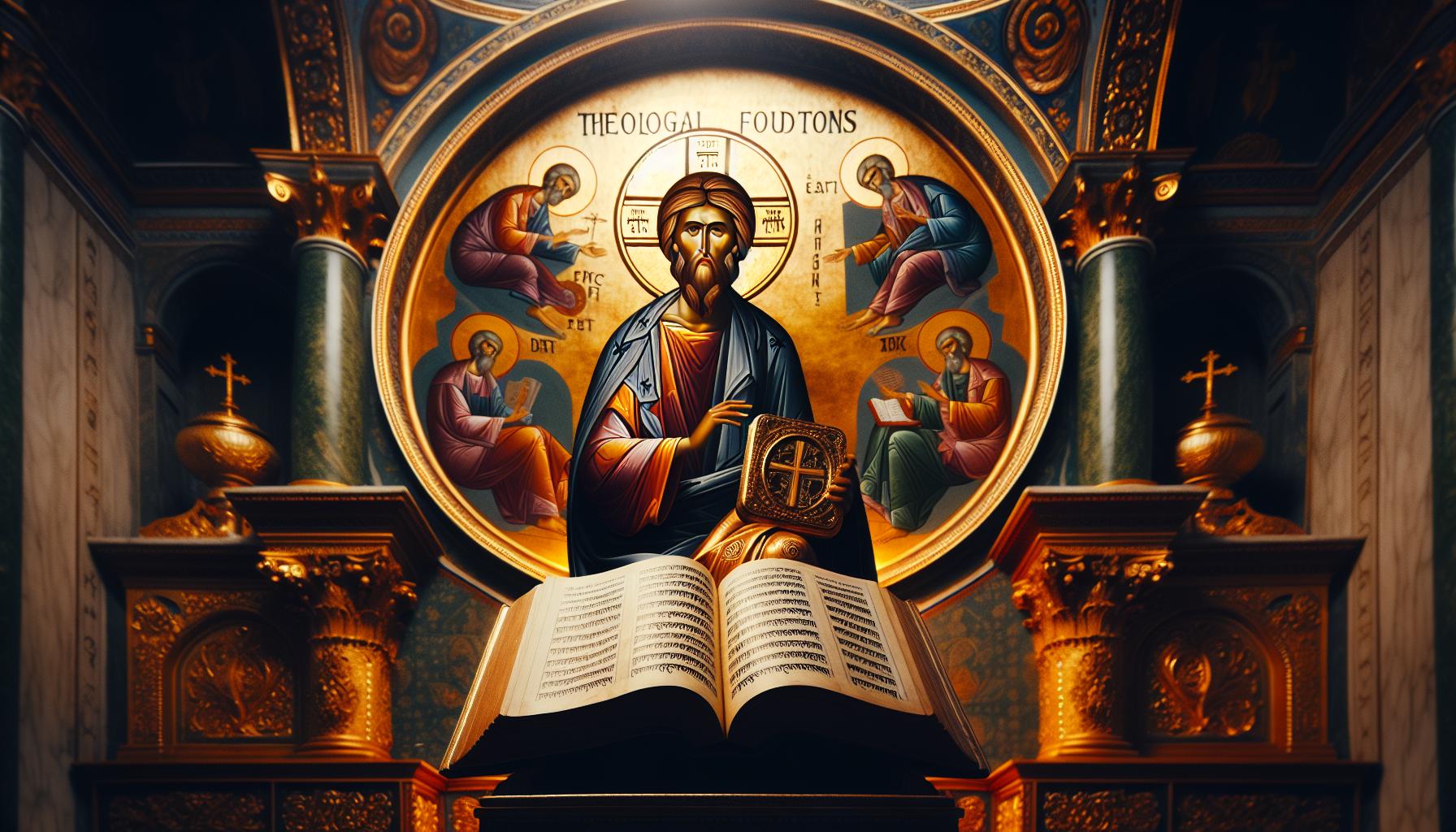Is Justin Pearson more than just a public figure? His spiritual background raises intriguing questions about his motivations and messages. As a prominent voice in advocacy, understanding the roots of his beliefs provides insight into his actions and influences, making this examination relevant to those curious about the interplay between faith and public service.
Unpacking Justin Pearson’s Journey: From Activism to Spiritual Leadership
Justin Pearson’s influence extends beyond the realm of activism, intertwining deeply with his spiritual evolution. An engaging figure, he has captivated audiences not just with his compelling calls for social justice but also with a resonant message that appeals to the fundamental beliefs of many. The question “Is Justin Pearson a preacher?” encapsulates a journey marked by a profound commitment to personal and communal transformation, embodying the convergence of activism and spiritual leadership.
His path began in the arena of civil rights and activism, where Pearson rallied for marginalized communities, drawing attention to issues of inequality and injustice. With a robust educational background, including studies in sociology and social justice, he equipped himself with the tools to effect change. However, as he engaged with various communities, a deeper dimension began to unfold — one where spirituality and activism could coexist and reinforce one another.
The Evolution of His Spiritual Leadership
As Pearson became more vocal about his beliefs, it became evident that his spiritual engagement was evolving. He began to incorporate elements of faith and spirituality into his activism, citing a moral obligation to support those in need. His approach can be summarized as follows:
- Empowerment through Faith: Pearson emphasizes the importance of spiritual grounding in the fight for justice, fostering resilience among community members.
- Inclusive Messaging: He believes in a faith that welcomes all, encouraging dialogues around spirituality that are aligned with social justice.
- Personal Testimonies: By sharing his own spiritual journey, he inspires others to embrace their faith as a tool for activism, demonstrating that personal belief can fuel public action.
Moreover, Pearson’s public speaking engagements often resonate with a preacher’s cadence, mixing heartfelt personal anecdotes with a call to collective action. His ability to connect with diverse audiences reflects a preacher-like quality, engaging listeners with a blend of empathy and authority. This unique amalgamation of attributes has raised questions about his role in the spiritual domain, especially regarding whether he can be classified strictly as an activist or if he is branching into the territory of a spiritual leader.
Ultimately, the intersection of Pearson’s activism and spirituality prompts us to reconsider the role individuals can play in fostering social change. While the inquiry surrounding “Is Justin Pearson a preacher?” remains relevant, it highlights an evolving narrative that encourages others to explore how their own beliefs can inspire action and motivate communities toward greater equity and understanding.
The Role of Preaching in Justin Pearson’s Life and Work
From the fervent speeches resonating in packed auditoriums to the quiet conversations held in community settings, Justin Pearson’s life illustrates how preaching can emerge in various forms beyond the traditional pulpit. His role as a public figure has not only elevated his voice but showcased the profound impact of his spiritual journey. The question of whether Justin Pearson is a preacher goes beyond mere titles; it probes into the essence of his message and the communities he seeks to uplift.
Influence of Spiritual Background
Pearson’s upbringing in a spiritually rich environment has played a significant role in shaping his worldview and communicative style. His early exposure to diverse religious practices provided a foundation, allowing him to relate to a broad audience. This diverse spiritual background is evident in his speeches, where he merges motivational speaking with spiritual insight, aiming to inspire and provoke thought among listeners.
Preaching as a Platform for Change
In his public endeavors, Pearson has utilized elements of preaching to advocate for social justice, mental health awareness, and community engagement. Here are some ways he incorporates preaching into his work:
- Storytelling: Pearson uses personal narratives to connect with his audience, drawing parallels between shared human experiences and spiritual lessons.
- Call to Action: Much like traditional sermons, his talks often include a compelling invitation for the audience to reflect and act on their beliefs.
- Community Building: By fostering dialogues that address pressing issues, he reinforces the community-centric aspect of preaching, creating safe spaces for discussion and healing.
Examples of Preaching in Public Engagement
Pearson’s engagements often lead to meaningful conversations that echo the principles of traditional preaching. Below is a table showcasing some notable instances where he has intertwined his spiritual messages with community activism:
| Event | Focus Area | Message |
|---|---|---|
| Community Rally | Social Justice | Empowering voices within marginalized communities. |
| Youth Conference | Mental Health | Breaking the stigma surrounding mental health through openness and support. |
| Local Church Events | Spiritual Growth | Finding purpose and community through faith and fellowship. |
In conclusion, the essence of Pearson’s work reflects a vibrant tapestry woven with the threads of preaching—an element that continues to resonate through his advocacy and public speaking. While the inquiry into his role might ask, “Is Justin Pearson a preacher?” the answer lies in observing how his life and work serve a greater mission, moving beyond rhetoric to inspire tangible change.
Exploring the Theological Foundations Behind Pearson’s Public Message
Justin Pearson’s rise as a public figure has not only been marked by his engaging rhetoric and commitment to social justice but also rooted deeply in his theological perspective. Understanding the spiritual background that shapes his public message is essential in grasping the motivations behind his advocacy efforts. His eloquent oratory is infused with a sense of purpose that reflects his beliefs, revealing the intricate relationship between his faith and his activism.
The Interplay of Faith and Activism
At the core of Justin Pearson’s approach is a profound commitment to the tenets of love, justice, and community service, principles that resonate strongly within many theological frameworks. His background in a religious tradition that emphasizes social action provides a foundational lens through which he views systemic issues such as poverty, inequality, and racial injustices. In this light, Pearson embodies the role of a modern-day prophet, drawing on scriptural references and religious teachings to call for transformation and healing within society. The heart of his message aligns closely with the prophetic tradition that encourages believers to advocate for the marginalized and seek reform, making his spiritual background a crucial element of his public persona.
In his speeches, Pearson often references key theological concepts, including:
- Grace: Acknowledging the imperfection in humanity while promoting the need for redemption through collective action.
- Solidarity: Advocating for unity among individuals from diverse backgrounds, emphasizing shared human dignity.
- Service: Promoting community engagement as a divine calling, urging people to contribute to the well-being of others.
Influence of Personal Experiences
The life experiences that shaped Justin Pearson’s theological outlook also play a pivotal role in his social activism. Growing up in a community where spirituality was intertwined with the fight against injustice fostered his understanding of faith as an active, living force. This perspective reflects a broader theological belief that faith must manifest in action—the idea that what one believes will inevitably influence one’s actions in the world.
His own narratives of perseverance against adversity and commitment to serve those in need serves as a powerful illustration of the application of spiritual principles to public life. Pearson demonstrates how embracing one’s faith can become a catalyst for change. By sharing personal stories of struggle and triumph, he invites others to reflect on their own beliefs and consider their role in addressing societal issues.
Bridging Theology and Public Discourse
Pearson’s public message is a bridge connecting theological ideals with real-world implications. His ability to articulate these principles in a manner that resonates with diverse audiences not only enhances his credibility but also serves to inspire collective action. This intersection of theology and advocacy underscores a key aspect of his influence as a public figure—one who sees the advocacy for justice as a holistic expression of faith.
Through engaging with his audience, Pearson encourages a reflective dialogue on the responsibilities of individuals in fostering social change, demonstrating that theological foundations can inform practical action. In this way, he embodies the belief that social justice is not only a secular goal but a spiritual imperative backed by deeply held convictions. By synthesizing these elements, Pearson effectively positions himself as a modern voice of hope and action in the dialogue surrounding social justice and community empowerment.
Spiritual Influences and Mentors in Justin Pearson’s Path
The journey of Justin Pearson as a public figure has been colored profoundly by spiritual influences and mentorship that have shaped his values and mission. Growing up, Pearson was exposed to a variety of spiritual teachings, fostering an environment that encouraged reflection and growth. This rich tapestry of experiences has not only guided his personal life but has also informed his public stance on various social issues.
Key Mentors and Influences
Throughout his development, several mentors have played crucial roles in Pearson’s spiritual evolution. Their guidance has been integral in shaping his views on community, faith, and activism. Some of the notable figures include:
- Local Church Leaders: Engaging with local clergy during his formative years instilled in him a strong sense of community and service.
- Spiritual Authors: Influential writings on spirituality and ethical living have broadened his philosophical outlook, impacting his public messages.
- Activist Peers: Collaboration with like-minded individuals in activism has not only strengthened his resolve but also provided a platform for inspiring change through shared spiritual values.
These relationships highlight how mentorship acts as a beacon, guiding individuals through complexities and encouraging them to become advocates for meaningful change.
The Impact of Spirituality on Activism
Pearson’s commitment to social activism is deeply intertwined with his spiritual beliefs. He often emphasizes the importance of compassion and understanding, echoing core tenets found across various spiritual traditions. This intersection of spirituality and activism has allowed him to effectively mobilize communities and advocate for the unheard.
To understand their effect, consider how spiritual practices might manifest in activism:
| Spiritual Practice | Impact on Activism |
|---|---|
| Mindfulness | Enhances focus on community needs and personal well-being. |
| Meditation | Fosters a calm approach to conflict resolution and dialogue. |
| Group Prayer or Reflection | Builds solidarity among activists, creating a strong support network. |
Pearson frequently shares these insights in his public speeches, advocating that deepened spiritual awareness can forge stronger, more compassionate communities ready to tackle social injustices.
In summary, the influences and mentors in Justin Pearson’s life have substantially shaped his spiritual background and public persona. His approach is not just about addressing issues superficially but also about fostering a deeper connection among individuals through shared values and belief systems, leading to collective action that speaks to the core of his advocacy.
How Justin Pearson’s Faith Shapes His Advocacy for Social Justice
Justin Pearson’s journey intertwines his robust spiritual beliefs with a fervent commitment to social justice. Rooted in a profound understanding of faith, he channels teachings from his religious background into advocacy that resonates across communities. This unique fusion drives his mission, as he harnesses the principles of love, equality, and compassion to address the systemic inequalities plaguing society.
Spiritual Foundations of Advocacy
His time spent in the church imparted vital lessons on empathy and social responsibility. For Pearson, faith is not merely a personal refuge; it’s a powerful tool for societal transformation. Drawing on the example of religious leaders who have historically advanced social justice movements, he recognizes the importance of spiritual authority in promoting human rights.
- Historical Figures: Pearson often cites influential leaders such as Martin Luther King Jr. and Desmond Tutu, who eloquently linked their religious convictions with civil rights.
- Community Engagement: His activism involves grassroots outreach that mirrors the communal spirit found in many religious practices, fostering connections with those affected by injustice.
- Empowerment through Faith: By integrating his spiritual beliefs into advocacy, Pearson empowers individuals to find their purpose and voice within the social justice movement.
A Framework for Action
Justin Pearson models his advocacy approach on the ethical tenets derived from his faith, creating a framework that resonates well beyond religious boundaries. He emphasizes the importance of solidarity in tackling systemic issues like poverty, racial injustice, and educational inequality. Central to his activism are the following principles:
| Principle | Description |
|---|---|
| Love and Compassion | Promoting kindness and understanding towards marginalized communities. |
| Justice and Equity | Championing equal rights and opportunities for all individuals. |
| Community Building | Fostering collaboration among diverse groups to address social issues. |
Through these principles, he inspires others to partake in the journey of advocacy, reminding them that faith-driven activism can lead to profound societal changes. By empowering individuals and communities alike, Pearson exemplifies how a solid spiritual foundation can fuel an unwavering commitment to social justice, proving that the question “Is Justin Pearson a preacher?” pertains to his engaging role as a modern-day prophet for equality and change.
The Interplay Between Politics and Preaching in Pearson’s Ministry
In the intricate tapestry of modern political life, the threads of faith and activism often intertwine, creating leaders who are not only advocates for social change but also voices of spiritual conviction. Justin Pearson is a quintessential example of this phenomenon, embodying a ministry that extends beyond the pulpit into the public square. His journey reveals how the roles of preacher and politician can converge, facilitating a powerful dialogue that resonates with diverse audiences.
The Role of Spirituality in Political Advocacy
Pearson’s preaching is deeply rooted in his spiritual beliefs, which guide his political activism. His sermons not only reflect traditional theological themes but also address pressing societal issues such as racial equality, economic justice, and environmental stewardship. This dual focus allows Pearson to connect with constituents on both a spiritual and practical level, making a compelling case for his political positions through a framework of faith-driven advocacy.
- Community Engagement: Pearson’s ministry encourages active participation in community issues, galvanizing congregations around social justice initiatives.
- Empathy in Leadership: His approach emphasizes understanding and compassion, demonstrating how spiritual teachings can inform political decisions.
- Bridging Divides: By advocating for unity and collective action, Pearson’s messages often transcend political affiliations, appealing to a broad spectrum of individuals seeking change.
The Impact of Preaching on Political Discourse
The direct influence of Pearson’s preaching on his political discourse can be seen through his ability to articulate often challenging subjects in a relatable manner. He employs rhetorical techniques usually found in religious settings—narrative storytelling, moral exhortations, and call-and-response engagement—inviting the public to reflect on their values and the implications of political decisions. This approach not only energizes supporters but also invites dialogue with those who may hold differing views.
| Element | Description | Impact on Audience |
|---|---|---|
| Storytelling | Sharing personal and community experiences | Facilitates connection and relatability |
| Moral Frameworks | Applying spiritual teachings to social issues | Encourages ethical considerations in politics |
| Community Invocation | Creating platforms for collective voices | Builds solidarity among diverse groups |
As the conversation surrounding Justin Pearson’s spiritual background deepens, it becomes evident that his role as both a preacher and a public figure enriches the political landscape. The intersection of faith and politics in his ministry reflects a broader trend where religious leaders are stepping into the arena of social justice, using their platforms to advocate for transformative policies. In this way, Pearson not only serves as a beacon of hope but also as a catalyst for profound change, seamlessly fusing the sacred and civic responsibilities.
Understanding Rituals: Baptism and Its Significance in Pearson’s Faith
Baptism is a significant cornerstone in many Christian traditions, symbolizing a believer’s faith commitment and a person’s admission into the community of believers. Through the lens of Justin Pearson’s spiritual background, understanding baptism not only sheds light on his journey but also illustrates the broader religious themes that resonate within his preaching and public life. This sacred act transcends mere ceremony, embodying profound meanings about rebirth, acceptance, and spiritual commitment.
Symbolism of Baptism
Baptism serves multiple purposes, ranging from personal to communal significance. In Pearson’s faith, it represents:
- Spiritual Renewal: The act is often viewed as a cleansing from sin, offering the baptized a fresh start in their spiritual walk.
- Public Declaration: For many, baptism acts as a public announcement of one’s belief in Jesus Christ, providing a platform for individuals like Pearson to share their faith journey.
- Community Inclusion: Baptism serves as an initiation into the faith community, reinforcing bonds among believers and welcoming newcomers into the fold.
Pearson’s public identity often intertwines with these elements, showcasing how his personal experiences and relationship with faith inform his preaching and activism. The act of baptism not only solidifies personal convictions but also connects believers within the broader tapestry of the Christian community.
Baptism’s Role in Spiritual Development
In Pearson’s spiritual narrative, the importance of baptism extends beyond the initial ceremony. It is part of a continuous journey of growth, exploration, and responsibility. This growth can be characterized by several milestones:
| Milestone | Description |
|---|---|
| Initial Acceptance | Acknowledging the significance of baptism as a pivotal moment in one’s spiritual journey. |
| Ongoing Reflection | Engaging in continuous spiritual learning and sharing insights through preaching. |
| Community Engagement | Participating in outreach and community service as an expression of faith post-baptism. |
These spiritual milestones reflect the evolving nature of faith, particularly prominent in Pearson’s activism and preaching, illustrating how the foundational act of baptism can inspire lasting impacts on personal development and community involvement. By understanding these layers of baptism, one gains insights into Pearson’s public persona and the motivations driving his spiritual message.
The Importance of Community in Justin Pearson’s Spiritual Approach
The intertwining of community and spirituality is a vital theme in the teachings and practices of Justin Pearson. As he actively engages with diverse groups, we witness firsthand how significant communal bonds can enhance individual spiritual journeys. For Pearson, the essence of preaching transcends the act of delivering a sermon; it is about fostering connections that uplift and empower individuals within a collective.
Building Spiritual Resilience Through Community
One of the core principles that resonate with Justin Pearson’s spiritual approach is the notion that community acts as a bedrock for resilience. When individuals come together, they create a network of support that encourages personal growth and collective well-being. Through shared experiences, people develop deeper insights into their own lives and spirituality, often leading to revelations that may not occur in isolation. Here are a few ways community strengthens spiritual journeys:
- Shared Learning: Learning from one another’s experiences and challenges can lead to greater understanding and wisdom.
- Emotional Support: In times of hardship, a supportive community offers comfort, advice, and compassion that can be vital to personal growth.
- Collective Action: Many spiritual movements gain momentum through community-driven initiatives, amplifying their impact and reach.
Examples from Justin Pearson’s Life
In various public engagements, Pearson has illustrated how community involvement can magnify the power of spiritual messages. For instance, during community outreach programs, he emphasizes unity in diversity, showing how different backgrounds can contribute to a holistic understanding of faith. This approach not only supports individuals but also builds cohesive environments where everyone feels valued. The dynamic between Pearson and his audience is palpable; he listens as much as he speaks, embodying a two-way mentorship that enriches the spiritual fabric of his community.
| Aspect | Description |
|---|---|
| Engagement | Encouraging open dialogues during community gatherings. |
| Inclusivity | Welcoming diverse individuals into spiritual discussions. |
| Service | Participating in local charitable activities to promote shared values. |
In exploring the essence of whether Justin Pearson is a preacher in the traditional sense, it becomes clear that his spiritual background emphasizes the importance of community as a conduit for spiritual enlightenment and personal development. Engaging with others not only enriches his teachings but also helps individuals discover their own paths, making the communal experience central to spiritual growth.
FAQ
Is Justin Pearson a Preacher: Public Figure’s Spiritual Background?
What is Justin Pearson’s religious background?
Justin Pearson has a strong religious background, deeply rooted in Christian faith. He has often spoken about his spiritual journey and how it influences his public life.
Raised in a supportive church community, Justin’s upbringing exposed him to diverse theological perspectives. His experiences have shaped his advocacy and public engagements, often reflecting his commitment to social justice and community service, which align with core Christian values. For more details about his journey, visit our section on spiritual influences.
Can I consider Justin Pearson a preacher?
While Justin Pearson is not a traditional preacher, his public speaking often incorporates elements of preaching.
His speeches focus on social issues, moral values, and community betterment, akin to a preacher’s message. Many followers feel his articulate presentation and passionate advocacy reflect the core of preaching, even if he doesn’t hold a formal title. This unique blend makes him an influential figure beyond the clergy.
Why does Justin Pearson speak about spirituality?
Justin Pearson speaks about spirituality to inspire and mobilize people around social justice efforts.
His perspective emphasizes that spirituality is integral to fostering community and promoting change. By addressing issues like inequality, he draws connections to spiritual teachings that advocate for loving and serving others. This approach helps bridge faith with actionable initiatives.
How does Justin Pearson’s faith influence his activism?
Justin Pearson’s faith significantly influences his activism, guiding his commitment to advocacy and community service.
His Christian values shape his approach to challenging social injustices, encouraging a response driven by love, empathy, and action. This alignment with his spiritual beliefs adds depth to his public persona and reinforces the interconnectedness of faith and advocacy.
What role does community play in Justin Pearson’s spiritual beliefs?
Community is central to Justin Pearson’s spiritual beliefs, reflecting his understanding of the Christian call to fellowship and support.
He advocates for active participation in community life, promoting shared values, mutual support, and collective action. His belief that spiritual growth occurs within a community context is evident in his engagement efforts, emphasizing that change is more impactful when rooted in collective faith.
Is Justin Pearson associated with any specific denomination?
Justin Pearson has connections to various Christian denominations but does not strictly affiliate with one.
His broad approach to spirituality allows him to resonate with diverse audiences, as he emphasizes universal values that transcend denominational lines. This inclusivity is pivotal in his message, fostering unity while respecting varying faith traditions.
In Retrospect
In exploring the life and spiritual journey of Justin Pearson, we’ve uncovered layers of faith and vocation that resonate across various religious landscapes. Whether or not Pearson is considered a preacher hinges on his public declarations and the impact of his spiritual journey, reflecting a blend of personal conviction and communal engagement.
It’s vital to recognize the theological nuances that shape our understanding of preaching and ministry. Engaging with sacred texts and recognizing the diverse traditions within Christianity can lead to a richer appreciation of Pearson’s role as a public figure. From his expressions of faith to his advocacy for justice, each aspect invites us to reflect on our own spiritual paths.
As you ponder the implications of Pearson’s ministry and lifestyle, consider how his journey can inform your understanding of preaching and community service. We encourage you to delve deeper into the theological concepts addressed in this article. Explore how they might relate to your own experiences, whether you’re involved in baptism, preaching, or community outreach.
Your perspective matters, and as you engage with these ideas, we invite you to contribute to the ongoing dialogue. Share your thoughts or questions, and let’s continue to explore the rich tapestry of faith together—one that honors diversity while nurturing a spirit of unity.





